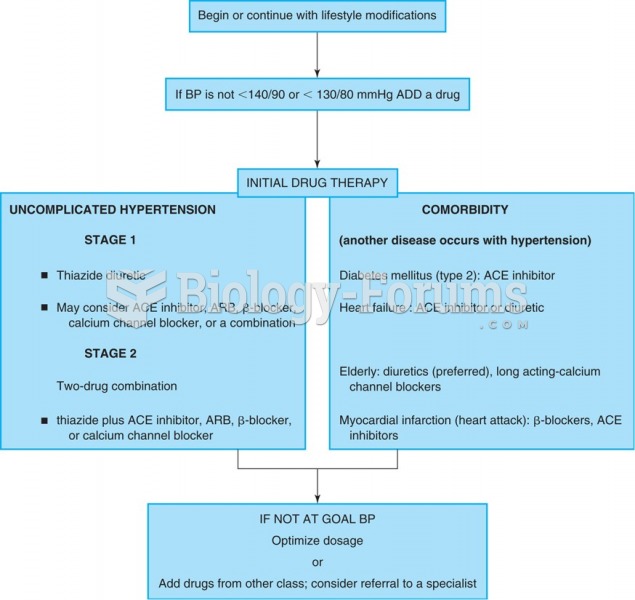- Grade 11 and 12 Mathematics (Moderator: geoffrey)
|
|
|
- Grade 11 and 12 Mathematics (Moderator: geoffrey)
Before a vaccine is licensed in the USA, the Food and Drug Administration (FDA) reviews it for safety and effectiveness. The CDC then reviews all studies again, as well as the American Academy of Pediatrics and the American Academy of Family Physicians. Every lot of vaccine is tested before administration to the public, and the FDA regularly inspects vaccine manufacturers' facilities.
According to the National Institute of Environmental Health Sciences, lung disease is the third leading killer in the United States, responsible for one in seven deaths. It is the leading cause of death among infants under the age of one year.
Blood in the urine can be a sign of a kidney stone, glomerulonephritis, or other kidney problems.
Lower drug doses for elderly patients should be used first, with titrations of the dose as tolerated to prevent unwanted drug-related pharmacodynamic effects.
Hyperthyroidism leads to an increased rate of metabolism and affects about 1% of women but only 0.1% of men. For most people, this increased metabolic rate causes the thyroid gland to become enlarged (known as a goiter).
 A permanent epicardial pacemaker. The pulse generator can be placed in subcutaneous pockets in the s
A permanent epicardial pacemaker. The pulse generator can be placed in subcutaneous pockets in the s
 Vasectomy. (a) Vas deferens is located within the spermatic cord on both sides. (b) A small incision
Vasectomy. (a) Vas deferens is located within the spermatic cord on both sides. (b) A small incision





